In our July 2018 cover story, we spotlight China’s hip-hop dance scene and how street dancers are educating the masses – while dancing around regulations.
Three dancers drop to the floor. Here we go, yo – here we go, yo – So what, so what, so what’s the scenario? The young men spin with their hands planted on the ground as A Tribe Called Quest’s 1991 hit ‘Scenario,’ blasts from the speakers.
Beijing’s Central University of Finance and Economics may seem like an unlikely place for a hip-hop dance show. But it’s where more than a dozen teams from universities across Beijing have gathered for a dance event organized by the university’s very own ‘Bankers Crew.’
In pale pink baseball jackets and baggy white pants, the aspirationally-named crew stands to the left of the stage in front of a blush-colored backdrop which sports an image of the subversive icon Peppa Pig. Spectators holler as crews perform in succession, thrusting their hips, pumping their arms and occasionally downing cans of Pepsi for panache.
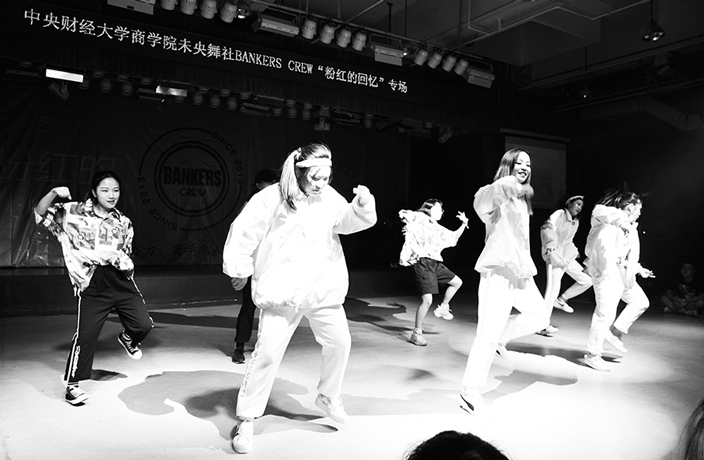
Bankers Crew members perform at a party (photo by Lu Qinxin)
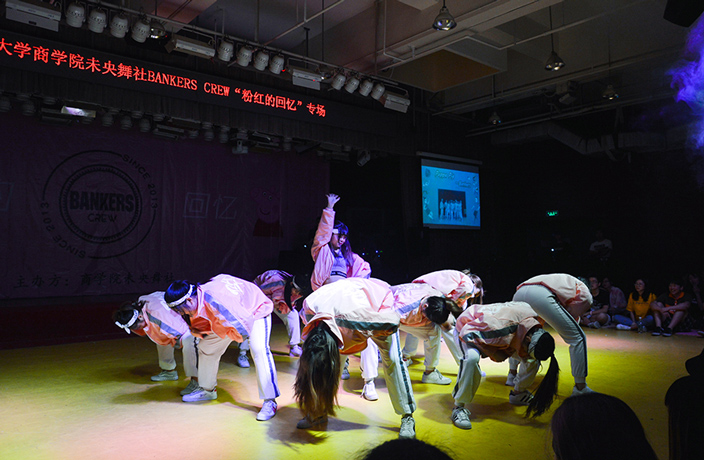
Bankers Crew members perform at a party (photo by Lu Qinxin)
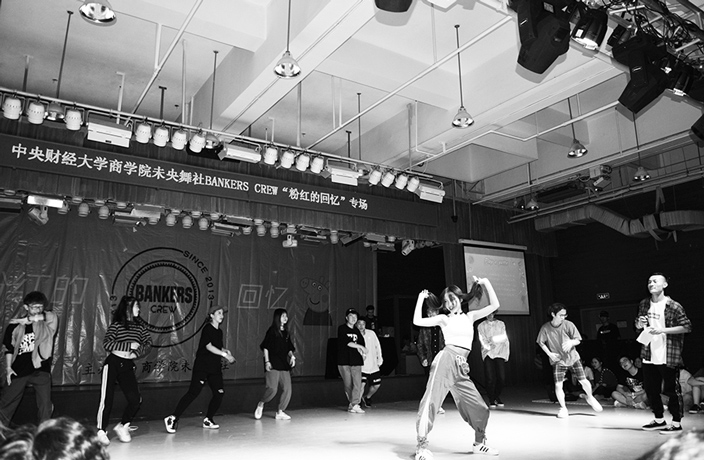 Bankers Crew members perform at a party (photo by Lu QInxin)
Bankers Crew members perform at a party (photo by Lu QInxin)
"Street dance is getting bigger and bigger [in China] and developing quickly,” says Liu Zhenyuan, the Bankers’ break leader, as Usher’s club anthem ‘Yeah!’ echoes from inside the hall. “It’s because of the two street dance shows that aired earlier this year.”
He’s talking about Youku’s ‘Street Dance of China’ and iQiyi’s ‘Hot Blood Dance Crew,’ which debuted in February and March, respectively. The rival shows saw bandana-wearing crews and individuals compete in dramatic dance-offs against elaborate neon-lit backdrops.
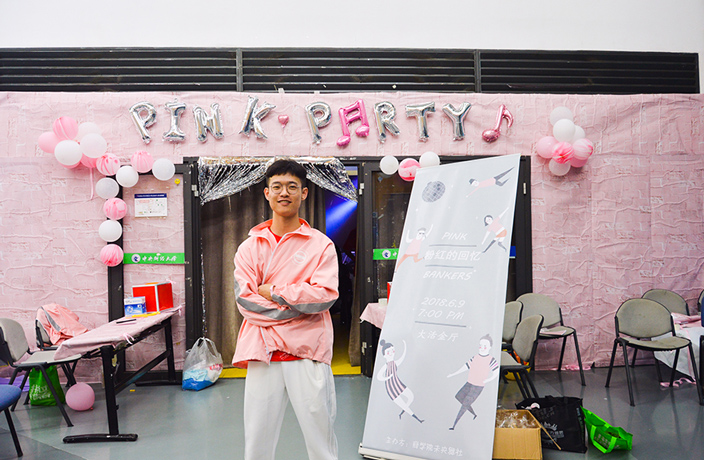
Bankers Crew member Liu Zhenyuan wears his uniform proudly (photo by Dominique Wong)
The shows have been an accurate – if highly dramatized – representation of street dance in China. The catchall phrase covers more relaxed dance styles, like hip-hop, jazz and urban. Street dancers or crews often take part in dance battles. They draw inspiration from famous street dancers like Michael Jackson, whose unique dance style fused pop, funk, soul and hip-hop. Although street dance’s spontaneous nature means it can be performed pretty much anywhere, its styles are often rooted in specific parts of the United States.
China is a long way from the block parties of New York City where hip-hop emerged in the 1970s, an outlet for disenfranchised minorities that was marked by political and social commentary. It’s in the Bronx, a poor New York borough, that breaking is said to have originated, when Jamaican-American DJ Kool Herc began switching between different hip-hop records during percussion breaks. Dancers that performed their fiercest moves during the break became known as b-boys and b-girls. Meanwhile funkier styles of dance, such as the backbeat-driven popping and locking, were emerging in California.
Despite this decades-long history, the activity has stayed mainly under the radar in China. That is, up until now. Today’s big-budget TV productions appealed to mainstream viewers by enlisting superstar judges and mentors like former EXO member and perennial brand sponsor Lu Han (‘HBDC’), and TFBoys’ dance extraordinaire Jackson Yi (‘SDC’). Many of the dancers were handpicked from established street dance groups from across China.
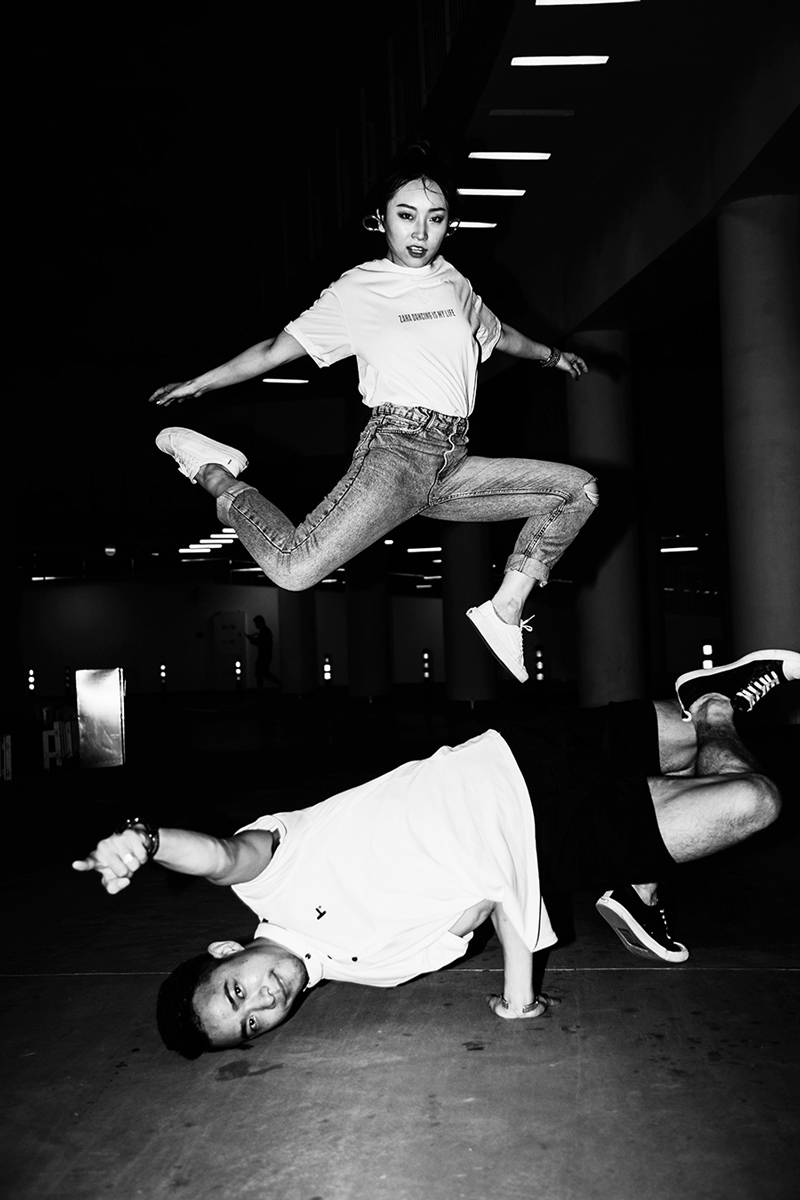
Fei SIhan and Wan Qingxin break it down in a Jianwai SOHO parking lot
The shows capitalize on China’s recent hip-hop obsession, which largely stemmed from 2017’s ‘The Rap of China.’ Featuring both aspiring and established Chinese rappers, the iQiyi reality show was a megahit, garnering over 1 billion views in its first month and memes inspired by judge Kris Wu’s iconic line: “Do you even freestyle?”
Unabashed in its portrayal of hip-hop-inspired swagger, fashion and music, ‘The Rap of China’ was for many Chinese viewers an entry point to hip-hop culture. However, soon after the finale aired in January, China’s State Administration of Press, Publication, Radio, Film and Television (SAPPRFT), issued new programming rules, apparently targeting hip-hop culture.
READ MORE: The 10 Biggest Moments in Chinese Hip-Hop in 2017
The media watchdog declared that “programs should not feature actors with tattoos or depict hip-hop culture, subculture (non-mainstream culture) and dispirited culture (decadent culture),” reported news outlet Sina. Additionally, SAPPRFT’s publicity director Gao Changli declared that shows shouldn’t feature actors whose “morality is not noble; actors who are tasteless, vulgar and obscene; actors who have no class and actors with stains and scandals [to their name].”
‘The Rap of China’ star and joint-winner, PG One (the other winner was Gai), was forced to apologize after one of his old songs, ‘Christmas Eve,’ was discovered by netizens who criticized its “degrading and out-of-line” lyrics (though PG One’s apology was derided when the artist claimed “black music” negatively influenced him during his early hip-hop days).
In light of the new rules, broadcasters of ‘SDC’ and ‘HBDC’ censored contestants’ dyed hair and tattoos, resulting in bizarre scenes, such as in ‘Street Dance of China,’ when a b-boy’s arm was blurred during a dance performance.
Nevertheless, China’s crop of street dancers are confident they can educate the masses – while dancing around regulations.
“Before I started street dancing, I was introverted – I didn't know how to express myself"
In a dance studio in Wudaokou, teenager Liu Baoxin wears a purple T-shirt with the logo of Chinese rap group Higher Brothers as he busts a move with his teacher Zhang Yuyao.
Liu has been learning hip-hop dance for six months at Star Town Studio, a street dance studio that was established four years ago. “I learned about hip-hop from ‘The Rap of China.’ I think it’s really cool,” the 17-year-old says. “Before I was introverted – I didn’t know how to express myself.”

High-school student Liu Baoxin (right) practices street dance with his teacher Zhang Yuyao
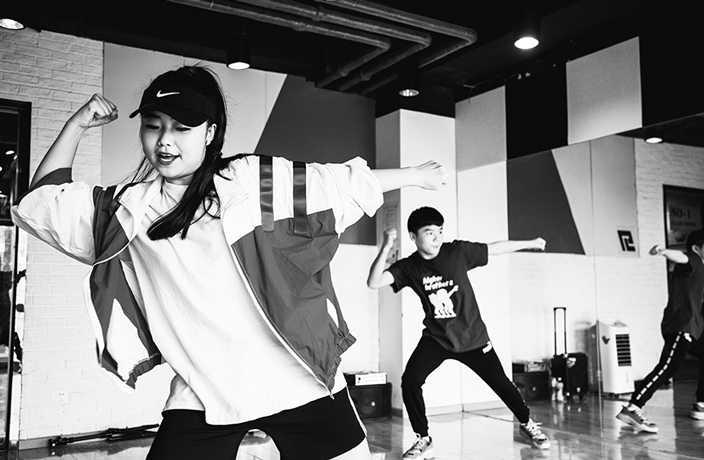 High-school student Liu Baoxin (right) practices street dance with his teacher Zhang Yuyao
High-school student Liu Baoxin (right) practices street dance with his teacher Zhang Yuyao
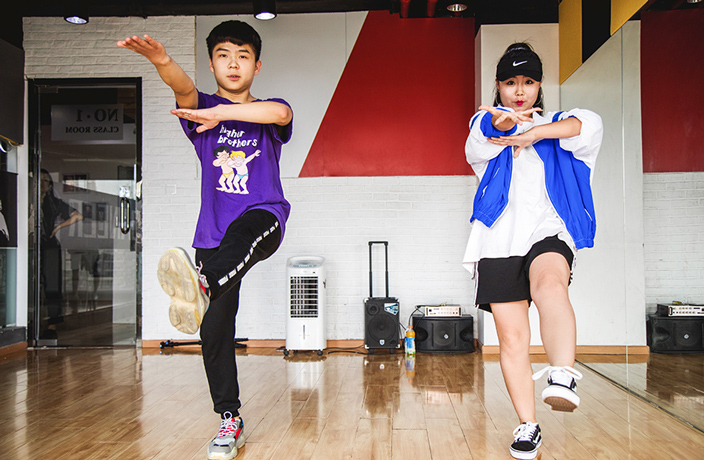 High-school student Liu Baoxin (left) practices street dance with his teacher Zhang Yuyao
High-school student Liu Baoxin (left) practices street dance with his teacher Zhang Yuyao
Originally from Henan, the Beijing high school student tells us that his parents support dance because of its physical benefits. Apart from Higher Brothers, the Chengdu group that blew up last year, Liu says he doesn’t have any other favorite hip-hop artists. “I’m still learning about hip-hop culture, and high school keeps me pretty busy,” he says.
Liu’s teacher Zhang started street dancing three years ago, after watching variety shows such as Hunan TV’s ‘Happy Camp.’ “I used to teach traditional Chinese dance,” she tells us. “But I think street dancing is really hot right now, and I like how you can do it anywhere.”
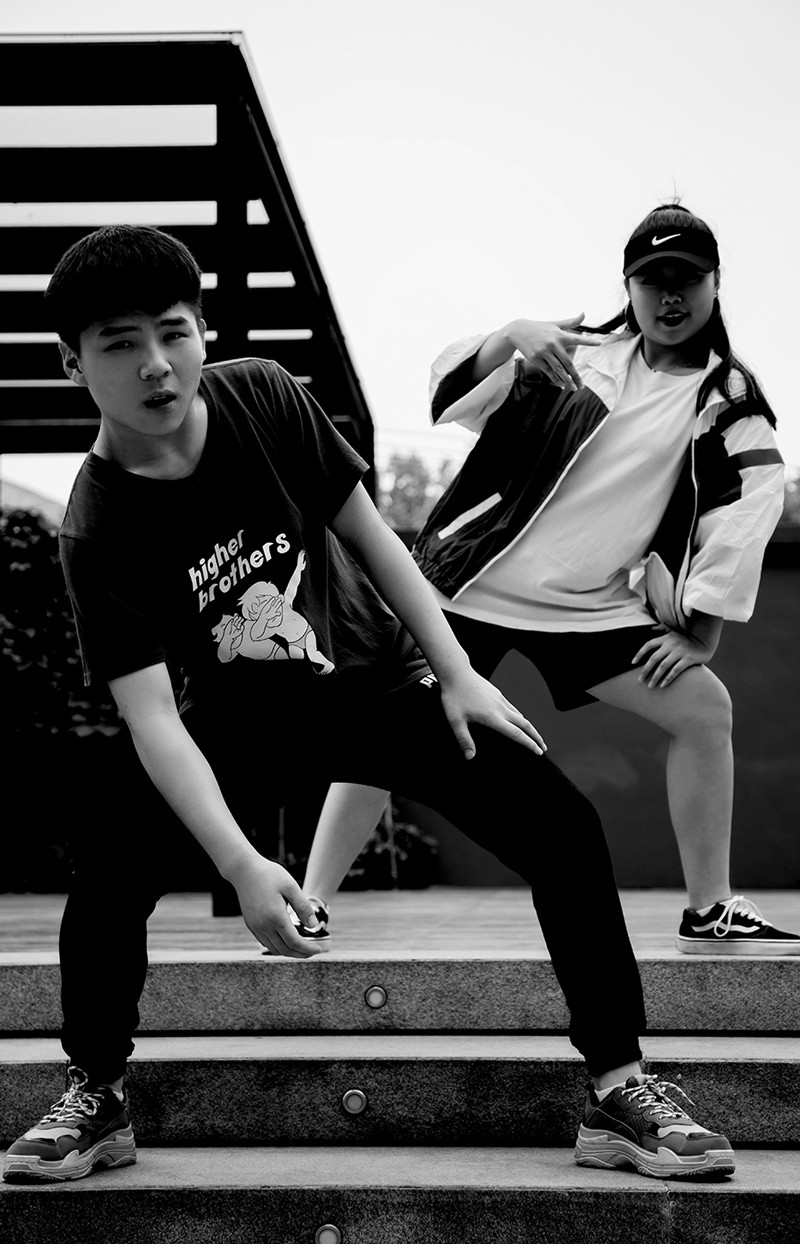
Liu Baoxin and Zhang Yuyao bust a move
And she truly means anywhere – like at a playground, club, or... cafe, which is where we meet Han Qingyu, a member of the China Hip-Hop Union Committee and founder of the Beijing Hip-Hop Union of Universities.
“Chinese dancers try to attract the attention of the audience, rather than express their feelings"
“This is Chinese-style street dance,” says Han. Beside him, his friend Wang Xiaoyu plays a beat on his phone, before moving his arms robotically in an exaggerated manner. “And this–” Han gestures towards Wang, “is a more international style.” Suddenly, Wang’s entire physical expression changes – a cheesy grin crosses his face and his movements, while still controlled, become more fluid.
“Chinese dancers try to attract the attention of the audience, rather than simply express their feelings while they enjoy the music,” Han explains. “It’s because of the [newly-developed] street dance environment in China. People are looking for recognition first.”
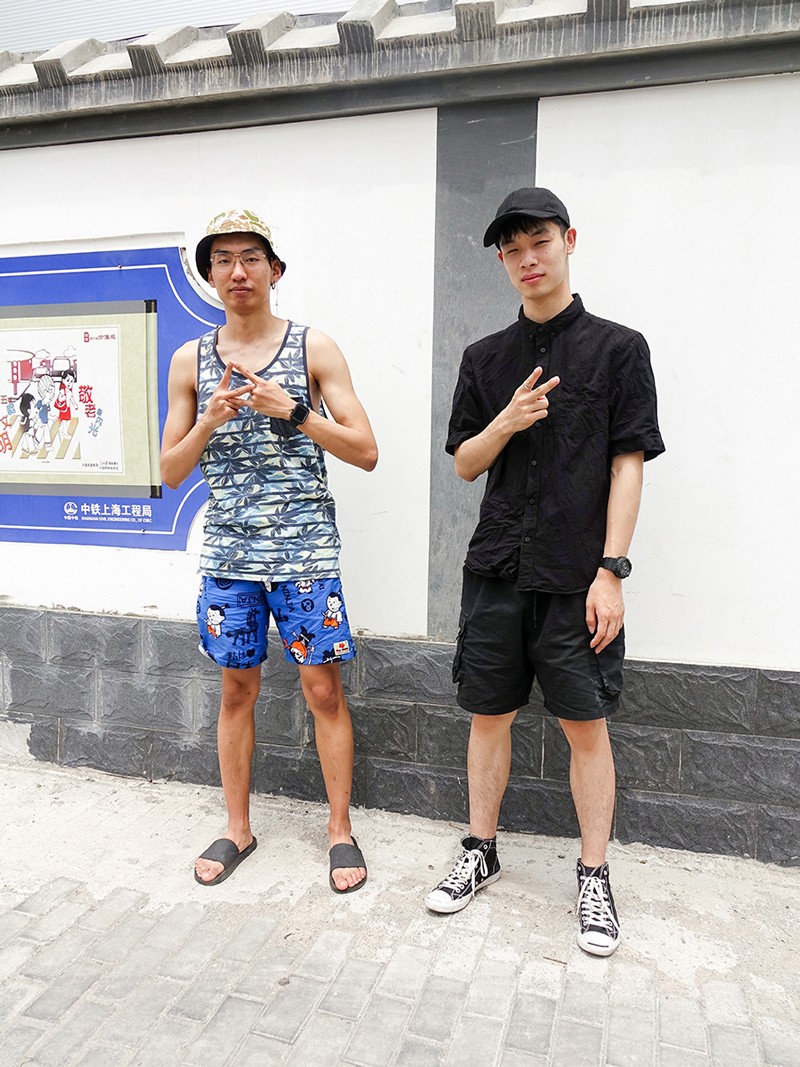
Street dancers Han Qingyu and Wang Xiaoyu strike a pose (photo by Dominique Wong)
His friend Wang specializes in popping – jerking specific parts of his body in a way that appears otherworldly – a point that’s made when he moves into the robot. The Zhejiang native plans to pursue a professional street dance career after graduation. Wang’s family was initially against him practicing street dance, he tells us, “but after I started winning awards, they came around. They’re fine with it now.”
After all, street dancers are becoming celebrities now.
Take TT, a locker who was featured on ‘Hot Blood Dance Crew.’ A member of Shenzhen crew ‘Wabble Streets,’ the dancer was a fan favorite. He has almost 19,000 fans on Weibo, who leave comments like: “Your smile is so contagious. Thank you for introducing me to locking. You are amazing.”
“I really enjoyed [being on the show],” TT tells us. “Hip-hop culture is a big part of my life – I can’t live without it.
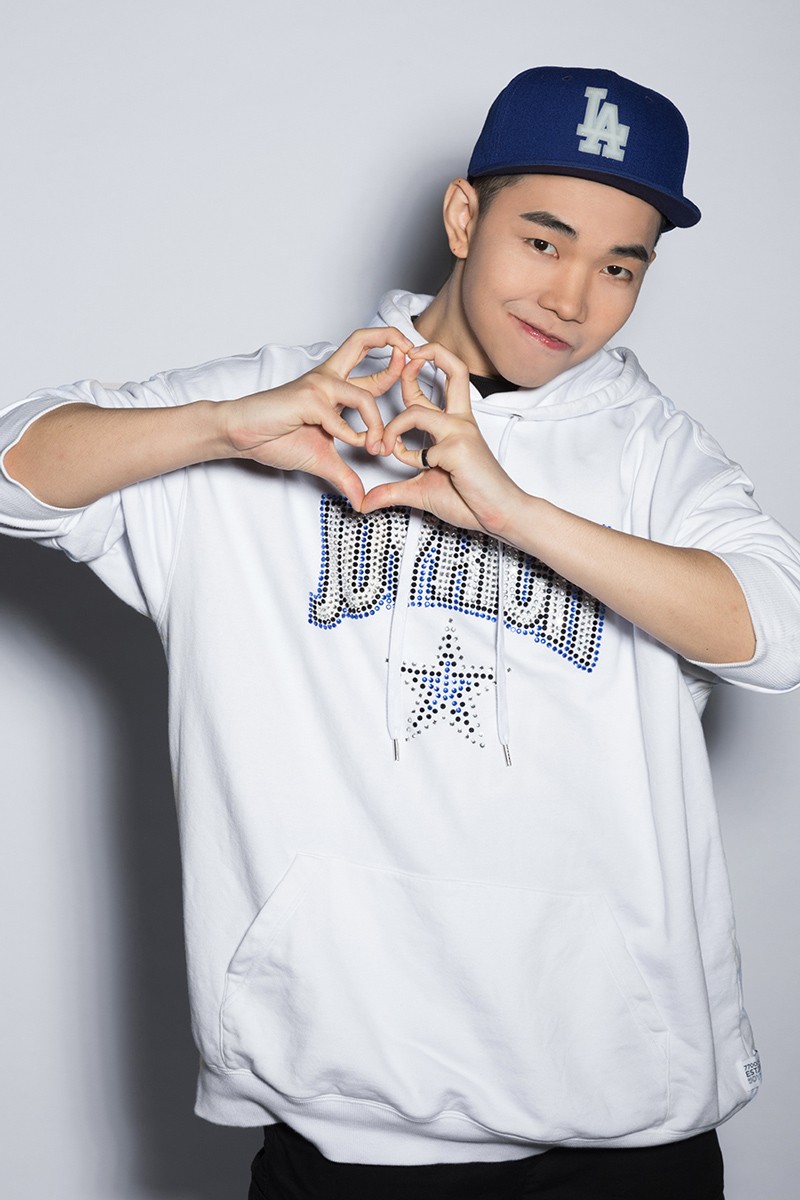
‘Hot Blood Dance Crew’ alum TT makes his signature pose (photo provided by TT)
“In the future, more people will fall in love with street dance, but it still needs a long time, maybe 10 or even 20 years, because it’s clear that many Chinese people still don’t understand what street dance is. Its development has only just begun.”
“It's common to see Chinese people wearing hip-hop clothes and listening to rap, but when they see dancers on the street, they just laugh"
Regarding increasing regulations around hip-hop culture, TT is pragmatic. “Keep it real. If you can’t rap without using negative words, then you haven’t truly understood the meaning of hip-hop culture,” he says. “Through my own personal feelings and experiences, I feel like the culture only brings about good things – peace and love!”

‘Hot Blood Dance Crew’ members take a break from practice with mentor Lu Han (photo provided by TT)
TT’s fellow Wabble Streets crew member Lian Shixiong, who goes by ‘MTUT,’ says: “I don’t need to say anything negative to express my hip-hop spirit.”
The real issue, Lian says, is a conflict between Chinese and Western culture. “Chinese people are more introverted, including those born after 1990. Even if they are more outgoing, they’re still deeply influenced by traditional Chinese culture. As a society, we have focused too much on studying and haven’t given enough attention to the development of arts.
“It’s common to see Chinese people wearing trendy hip-hop clothes and listening to rap music, but their heads don’t nod, and when they see street dancers on the street, they just laugh.”
On a warm Tuesday evening, we find ourselves in a Jianwai SOHO underground parking lot, watching dancers Fei Sihan and Wan Qingxin groove as the sky darkens outside. A parking garage attendant wanders by and pauses, staring at the couple as they vogue, break and slide across the cement ground.
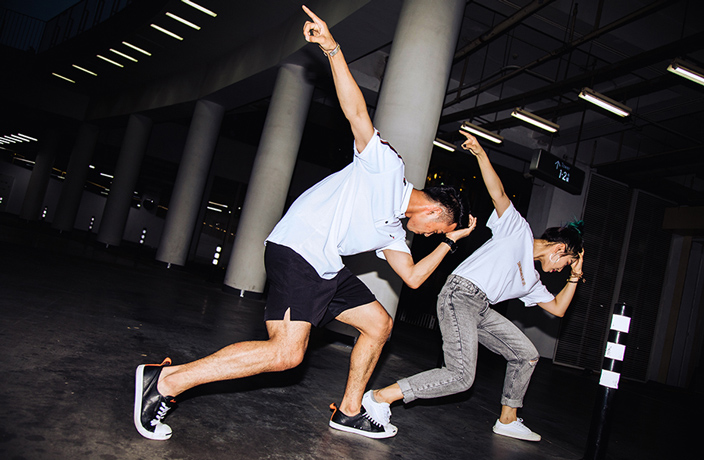
Street dance teachers Fei Sihan and Wan Qingxin dab underground
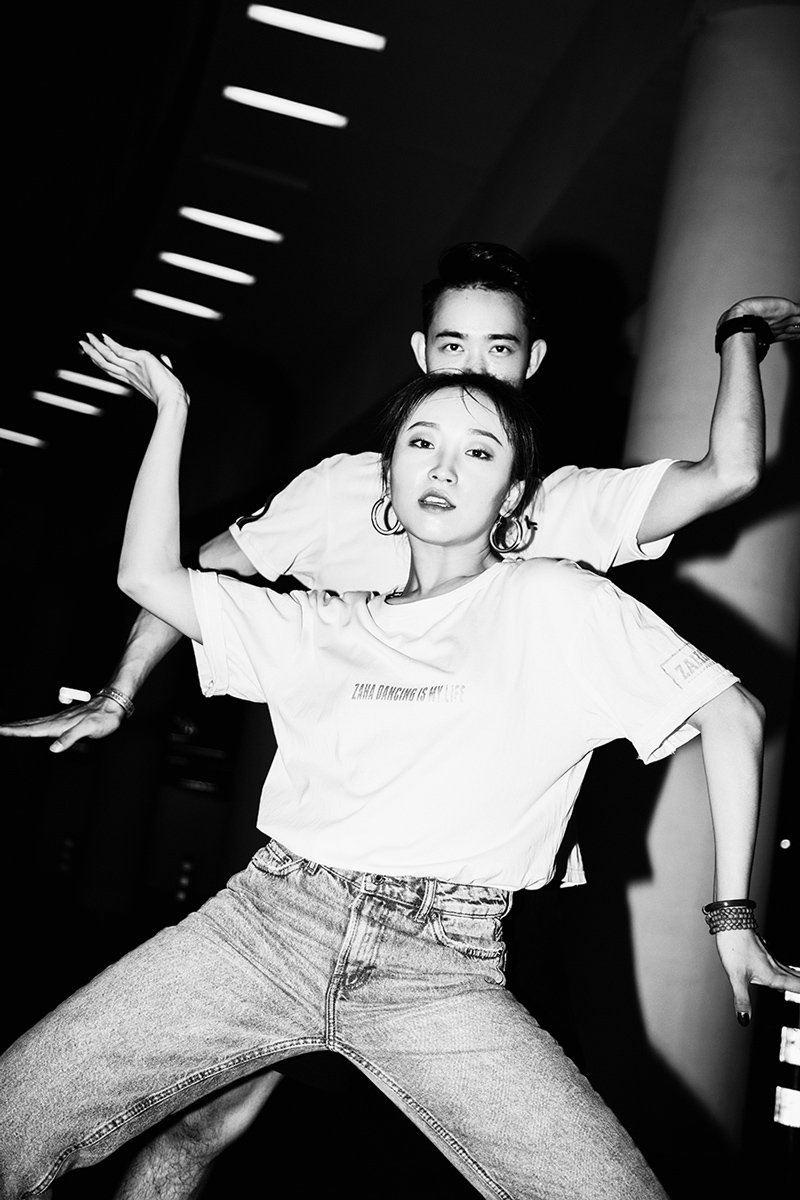
Fei Sihan and Wang Qingxin create shapes
Fei and Wan are full-time teachers at Zaha Club (they belong to Zaha Sugar crew) and were featured on ‘Hot Blood Dance Crew.’ Although Fei didn’t progress past the audition, Wan made it into the top 60, and has noticed more students and fans joining her workshops this year, as a result of the show. “It’s embarrassing. Now I have to prepare my classes more seriously,” she says, laughing.
Despite tasting a sliver of celebrity on the show, dancing remains Fei’s number-one priority. “[I learned that] the most important thing is for dancers to focus on the dancing itself, not fame, or money.”
“I like the feeling and spirit of hip-hop culture,” he says. “It’s about being free and happy. Because I’m a hip-hop dancer, I feel like I’m part of the culture. We’re living it.”
[Photos by Irina Senina]
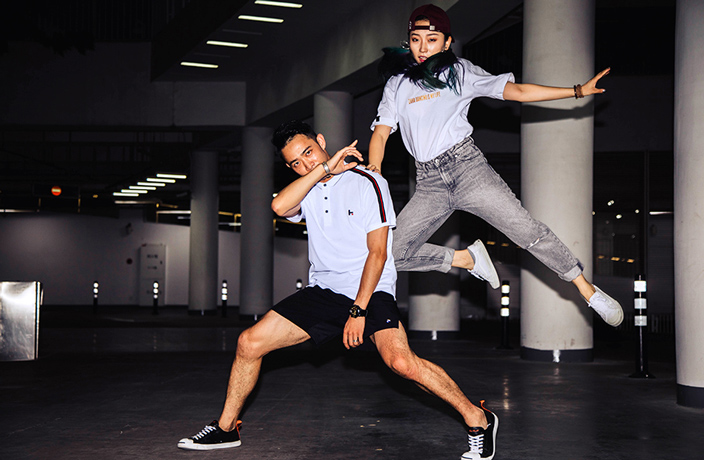





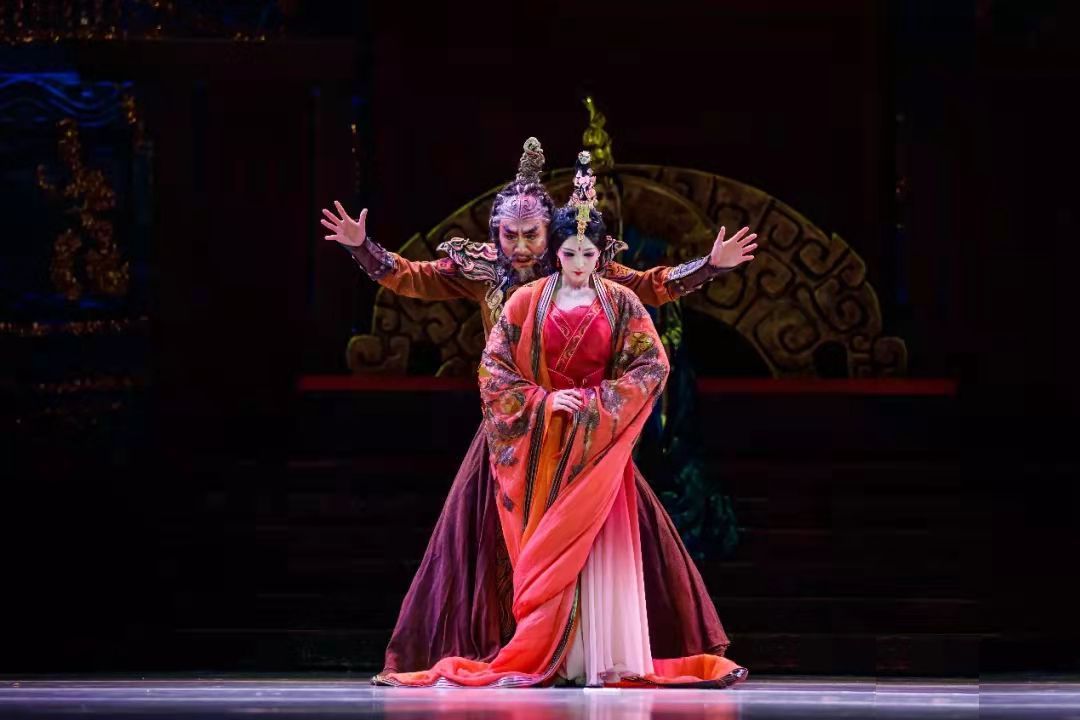
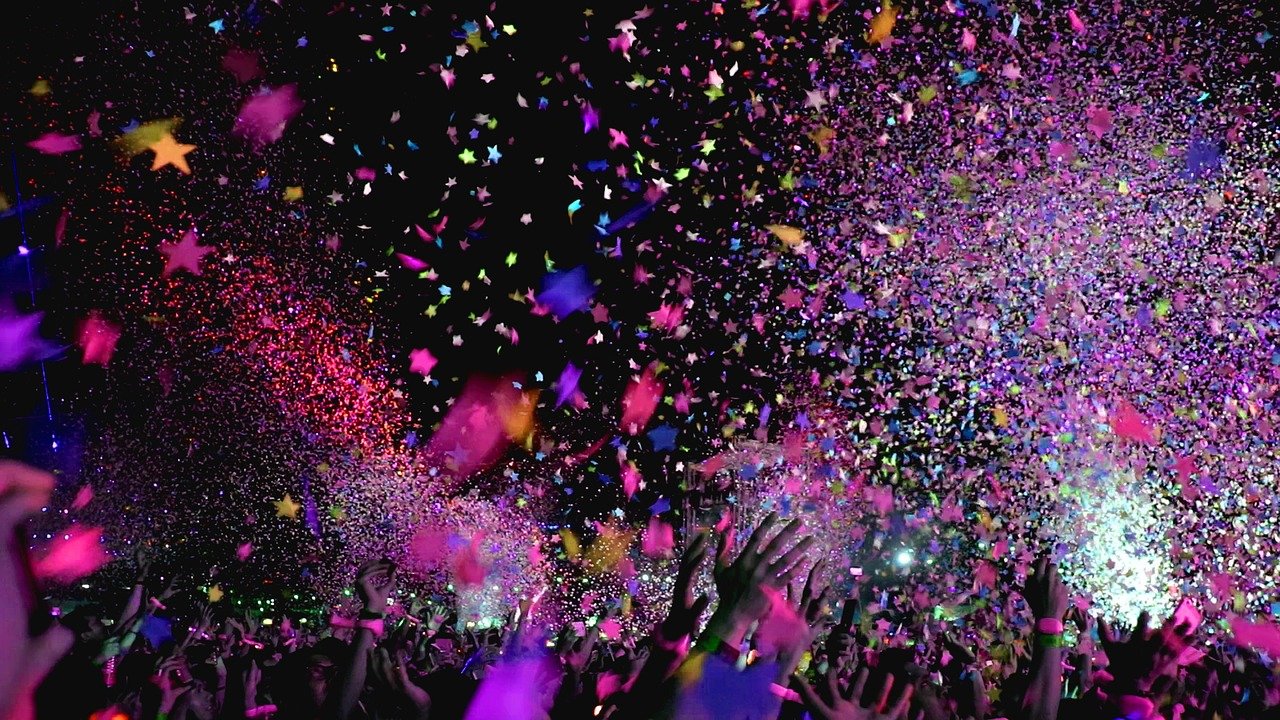













0 User Comments